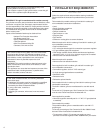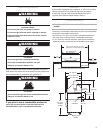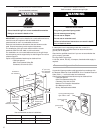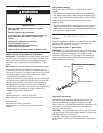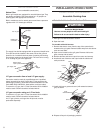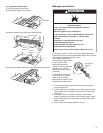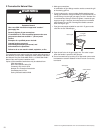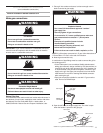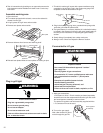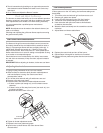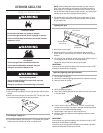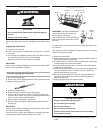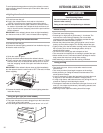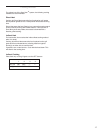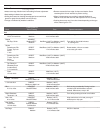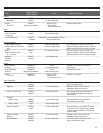Special offers from our partners!

Find Replacement BBQ Parts for 20,308 Models. Repair your BBQ today.
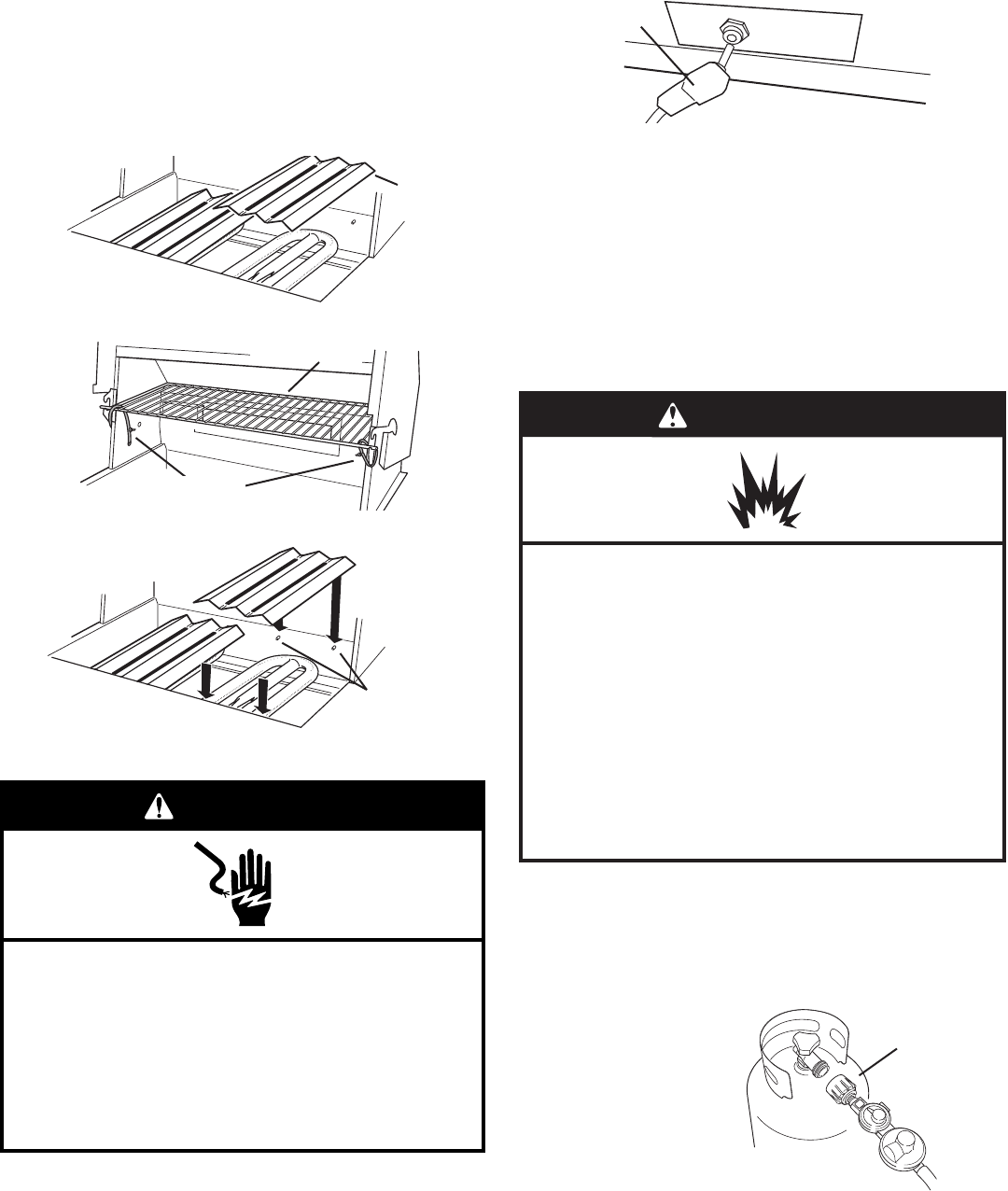
12
4. Test all connections by brushing on an approved noncorrosive
leak-detection solution. Bubbles will show a leak. Correct any
leak found.
Assemble cooking area
1. Open the hood.
2. For models equipped with rotisserie, remove the rotisserie’s
skewer from the grill.
3. Lift grill grates off of grill area and set aside.
4. Remove sear plates and set aside.
sear plate
5. Remove tiedowns from burners and warming shelf.
warming shelf
remove
tiedowns
6. Reinstall sear plates. Make sure sear plates are resting on pins.
pins
4. Gently slide grill completely into outdoor enclosure.
5. Now go to the “Check and Adjust the Burners” section.
If converted to L.P. gas
1. Make gas connections.
L.P./Propane: A 20 lb. L.P. tank must be purchased separately.
Install the tank into the compartment below the grill and screw
the hose/regulator assembly to tank as shown.
The pressure regulator and hose assembly supplied with the
L.P. conversion kit must be used.
hose regulator
assembly
2. Turn on the gas supply.
Wait a few minutes for gas to
move through the gas line.
1. This built-in outdoor grill comes with a power transformer plug
assembly for the grill light. Plug in the single-prong plug in the
receptacle on the left underside of the grill.
2. Plug in the three-prong plug into a grounded three-prong outlet
under the grill inside the cabinet area.
3. The ignitor battery is not factory installed. A 9 volt alkaline battery
is located in the accessory box on the grill grate. Install battery at
this time per the instructions in “Replacing the Ignitor Battery”
section.
single prong
plug
Plug in grill light
Electrical Shock Hazard
Plug into a grounded 3 prong outlet.
Do not remove ground prong.
Do not use an adapter.
Do not use an extension cord.
Failure to follow these instructions can result in death,
fire, or electrical shock.
WARNING
WARNING
Explosion Hazard
Use a new CSA International approved “outdoor”
gas supply line.
Securely tighten all gas connections.
If connected to LP, have a qualified person make sure
gas pressure does not exceed 11” (28 cm) water
column.
Examples of a qualified person include:
licensed heating personnel,
authorized gas company personnel, and
authorized service personnel.
Failure to do so can result in death, explosion, or fire.



